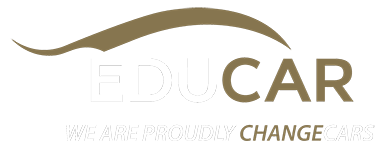The new vehicle market nosed upwards by 2,2% in April with 38 172 units sold with passenger cars showing a healthy growth of 6,1% for the month that was largely uninterrupted by loadshedding – and despite the fuel price increase.
This year is a significant one for the local auto industry as it celebrates its manufacturing centenary and Mikel Mabasa, CEO of naamsa, says: As the sun rises on a century of automotive innovation, South Africa proudly commemorates 100 years of automobile manufacturing excellence. From humble beginnings to global recognition, this milestone reflects a journey of resilience, ingenuity, and passion that has shaped the nation's automotive legacy.’
Sadly though, export sales experienced a decrease of 7 355 units, or 23,9% in April 2024 compared to April 2023.

We can ensure you have the best insurance - click here
Car sales also reflected the meteoric rise of Suzuki as a major player with the brand unseating Volkswagen to claim second spot on the sales chart for the first time.
Domestic sales of new light commercial vehicles, bakkies, and mini-buses in April showed a decrease of 953 units, or a drop of 9,0%, while sales in the medium and heavy truck segments showed robust performance for April 2024, with 590 units and 1 964 units sold, respectively, reflecting an increase of 33 units, or 5,9%in the case of medium commercial vehicles and an increase of 241 vehicles, or 14,0%, for the heavies.
Economic factors remain crucial in affecting new vehicle sales, including interest rates, unemployment rates, GDP growth rates, disposable income, and exchange rates. As increases in interest rates affect the affordability model for consumers, downsizing purchases remains a significant factor linked to consumers being more selective and financially conscious in their vehicle choices.
The composition of the South African vehicle market is thus reflecting the growing popularity of less expensive, smaller cars, sport utility vehicles [SUVs] and crossovers and light commercial vehicles.

Beat the inflation spiral - check out our pre-owned vehicle listings for your dream car
Following the upcoming May 2024 national elections and the anticipated commencement of the interest rate cutting cycle during the second half of the year, prospects for the new vehicle market are expected to improve.
Brandon Cohen, chairperson of the National Automobile Dealers’ Association (NADA), says: "This upturn is particularly significant given the eight consecutive months of sales decline that preceded it, marking a promising development for the industry.
"The industry's ability to weather challenges and exhibit year-on-year comparative growth amidst adversity is commendable. Our focus remains on leveraging data insights to inform strategic decisions and drive continued progress."
“Any comparisons year-on-year must also be considered within the number of selling days during April,” says Lebo Gaoaketse, head of Marketing and Communication at WesBank. “March sales this year were heavily impacted by the public holidays being early in the calendar when the holidays fell within April 2023. It means April 2024 sales were earned in 21 selling days versus three days less during April 2023.”
He pointed out recent warnings from the South African Reserve Bank that interest rates will remain higher for longer given the state of inflation, consumers continue to face barriers to debt and the ongoing challenges of affordability.
“High interest rates impact already indebted consumers on linked rate agreements to service debt, whilst also influencing the purchase decision on a big capital asset such as a vehicle given the wherewithal to afford the instalments,” says Gaoaketse. “We expect this will continue to limit the ability for banks to service applications and, therefore, continue to lengthen the replacement cycle.”
Colin Windell
Proudly CHANGECARS












